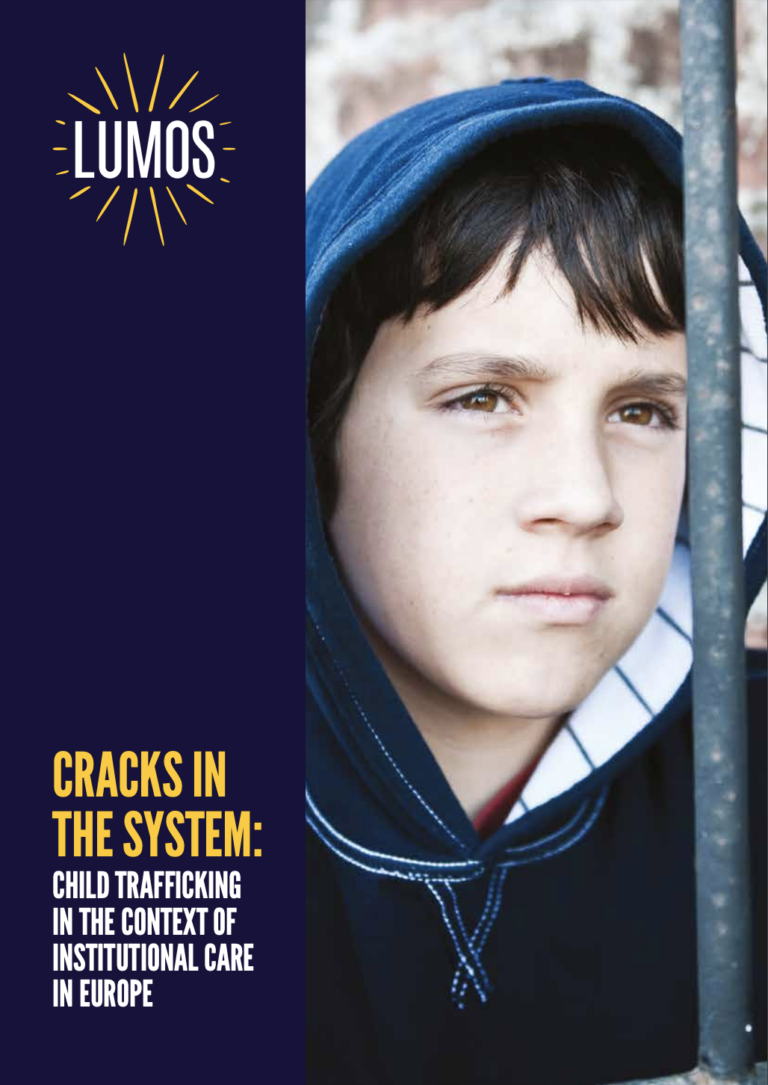This report was researched and written by Chloe Setter, Emiel Coltof, Aisling Ledwith, Nyonsuabeleah Kollue, and Abigail Munroe.
Cracks in the System is a new report from Lumos that is the first of its kind to systematically explore the links between institutional care and child trafficking in Europe.
For many years, it has been known that traffickers directly target children in the care systems of many countries for recruitment into trafficking and that care leavers are at increased risk of exploitation. Despite this, laws and policies across Europe seldom connect the issues of child institutionalisation and child trafficking.
This new research identifies four main ways in which trafficking is linked with institutions for children, referred to as “institution-related trafficking”:
- Children are recruited and trafficked into institutions, solely for the purpose of financial profit (“orphanage trafficking”), and other forms of exploitation;
- Children are trafficked from orphanages/institutions into other forms of exploitation;
- Child trafficking victims and unaccompanied children are often placed in institutions for “protection”, which can put them at risk of trafficking and re-trafficking;
- Care-leavers are more vulnerable to exploitation and trafficking.
Cracks in the System aims to synthesise, appraise and build on the current evidence base on the phenomenon of institution-related trafficking and its manifestations in diverse contexts around Europe.
Importantly, it also provides recommendations on how to address the specific vulnerability to exploitation of children in or at risk of institutional care in Europe.

